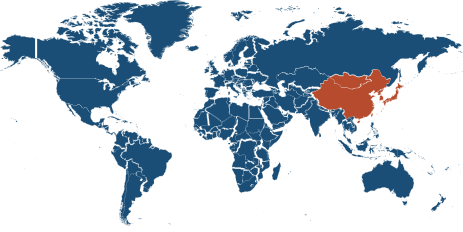
East Asia
Yao-ju “Charlie” Soong
- Location
- China
1,213 enrolled students at Duke Kunshan University in Kunshan, China
Regional Highlights
Overseas Partnership
Duke Kunshan University (DKU) was established as a partnership between Duke University in the United States and China’s Wuhan University.
In August 2014, Duke Kunshan began welcoming graduate students as well as undergraduate students for its Global Learning Semester program. The university launched its four-year bachelor’s degree program for undergraduate students in August 2018.
The state-of-the-art campus covers 200 acres in Kunshan, Jiangsu province, China.
Kunshan is located close to Shanghai and Suzhou, two of China’s most dynamic cities, and is a hub for high-tech research and manufacturing.
Asian/Pacific Studies Institute
The Asian/Pacific Studies Institute (APSI) is the focal point of research and teaching on the Asia Pacific region at Duke University.
Since 1981, APSI has been supporting a dynamic group of faculty with a broad range of interdisciplinary expertise in the humanities, social sciences and medicine.
APSI fosters an active community of scholars of East and Southeast Asia, promotes the highest standards of undergraduate and graduate education in Asian Studies, enhances awareness of Asian cultures at Duke and across the Triangle, and provides academic and cultural resources about Asia to schools, colleges and universities in the southeastern United States.
DukeEngage – South Korea
During their two months with the DukeEngage program in South Korea, students will work in educational facilities for North Korean and other migrant/refugee communities, focusing on issues such as education, adjustment, and other well-being concerns of the community members.
This program engages with both the challenges and opportunities arising from shifting demographics and the changing fabric of South Korean society with refugees from North Korea and economic migrants from Russia, China, Vietnam, the Philippines, Pakistan, Bangladesh, Nepal and elsewhere.
It focuses on engaging the everyday realities of this changing social dynamic, recognizing and apprehending the complexity of the situation and building friendships and working towards mutual transformation of both Duke students and community members.
This Region Includes

Taiwan’s COVID-19 Response
Cheryl Lin shares the policy lessons she observed while reviewing Taiwan’s public health response to the pandemic.
